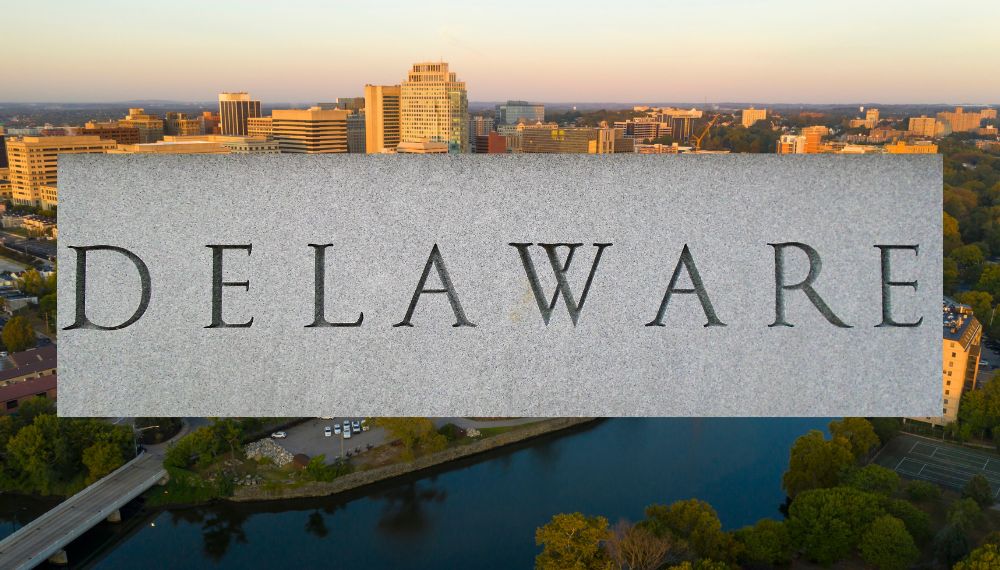Should I Replace or Repair my Air Conditioning (HVAC) System?
- December 22, 2022
- admin
- Category: Uncategorized

A home’s heating, ventilation, and air conditioning system is among its most vital and costly components. So when the system begins flashing warning lights, homeowners are left with a tough choice. The question of whether to replace or repair an HVAC system is one that every homeowner must answer for themselves.
As winter weather approaches, homeowners want their HVAC systems to be ready for cooler temperatures. Homeowners should arrange for annual inspections of their heating system and furnace in the fall. When a reliable HVAC professional finds a problem with your heating system, you’ll need to decide whether to repair it or replace it.
Delaying a new furnace installation, for instance, can have some positive effects. To begin with, it’s more cost-effective to repair an HVAC unit than of replacing it.
Buying a new furnace and spending upwards of $10,000 on it may seem like an obvious choice when your furnace breaks down, but for some homeowners it would be wise to weigh the current state of their property, potential future outcomes, and the weather forecast before making such a large purchase. Taking unorthodox measures to survive the final throes of winter may prove fruitful in the end, even though you shouldn’t base your home repair plans on the groundhog’s shadow.
A homeowner who must decide between repairing and replacing their HVAC system needs a strategy.
Here is some context that should help you make the best choice for your family and house.
Should I Replace or Repair my Air Conditioning: Warning Signs that an HVAC Usually Shows
Has your home’s heating (and cooling) system been acting sluggish or inefficient recently? Is there a simple problem with your heating, ventilation, and air conditioning system?
When deciding whether to replace or repair your HVAC system, there are a few telltale indicators that can help you narrow down your options.
1. Clogged Filters
Changing the filters may be necessary if turning the heat on does not result in a warmer home. If the filters are clogged, the air cannot circulate properly. As a result, lack of sufficient airflow is a key cause of inefficient HVAC systems. You should check your filters once a month and change them as needed.
2. Leaks
Although it may be easy to see a leak in your HVAC system, fixing it may prove more challenging. Looking for water dripping from anywhere besides the condenser line, the most likely place for leaks to occur should be the first order of business while trying to find the source of the problem. If you notice any dripping pipes, contact your HVAC service.
3. Electrical Issues
There are electrical parts in every HVAC system (including gas or oil-powered units). Ignition system problems are the most common type of electrical trouble. Your unit’s electrical igniter may malfunctioning if it clicks repeatedly before lighting or if it fails to light after lighting. Any disruption to the electrical system may cause the system to malfunction, wasting fuel and preventing it from functioning properly.
4. Worn Parts
Inevitably, the moving parts of HVAC systems will wear down over time. Normal wear and tear on components like belts and motors will lower your HVAC system’s performance. If your heating, ventilation, and air conditioning system isn’t working as it should, it’s time to schedule maintenance. A well-functioning HVAC system may have a hefty initial investment, but it will end up saving money in the long run.
5. Age of HVAC Unit
Replacement of a 10-15-year-old HVAC system can save annual heating and cooling expenditures by up to 20%, as stated by Energy Star. If you are unsure of how old your HVAC system is, you may find out by looking at the serial number.
The effectiveness of your HVAC system will decrease over time as a result of things like leaks, obstructions, or simple wear and tear. Thankfully, inquiries and warnings are displayed by your HVAC system.
If any of these problems occur, it’s time to call in a professional HVAC specialist. Qualified service specialists can diagnose problems and provide you with realistic estimates of your HVAC system’s remaining lifespan.
Factors That Determine Whether You Should Replace or Repair the HVAC Unit
A new air conditioner, especially one of high quality and efficiency, is a significant financial commitment. In most cases, it is more cost-effective to repair an existing unit rather than replace it unless the device is not functioning properly and cannot be fixed without major expenditures.
When selecting whether to replace or repair your current air conditioner, it’s important to take into account the following:
1. The Age of AC Unit
The normal lifespan of an air conditioner is between 10 and 15 years. Your unit’s useful life span extends with regular maintenance.
Whether the unit is beyond its 10-year warranty, you’re experiencing more frequent problems, or repairs are costing you an arm and a leg, it may be time to consider replacement. Repairing an air conditioning unit may be cost-effective if the unit is less than 10 years old, has been very well, and hasn’t experienced a disastrous breakdown.
2. Cost of the Repair
In most cases, it is not cost-effective to buy a new air conditioner if your current one is still functioning adequately, even if repairs could cost several thousand dollars.
The “5,000 rule” is used as a benchmark by many in the HCAV industry. By calculating the age of the unit and adding the cost of repairs, you can see if it’s more cost-effective to buy a new one or invest in repairs. Fix it if the cost is less.
3. Regular Maintenance of AC
It’s common knowledge that maintaining your air conditioner once a year can reduce your energy bills. A standard AC tune-up will set you back between $125 and $350. In addition, the life of your air conditioner can be prolonged by routine maintenance, which entails removing debris, replacing filters frequently, and sealing air leaks.
4. Environmental Impact
R-22 Freon refrigerant is commonly used in air conditioners that are more than ten years old. Creating this in the United States is illegal as of 2020. As a result, the price of the remaining stock is far higher than that of the more widely accessible R-410a refrigerant used in newer air conditioners. Besides increasing the price and complexity of fixing refrigerants, this product is harmful to the natural environment.
5. Cost of Energy Bills
An older air conditioner, no matter how properly maintained, can never match the efficiency of a newer one. Each air conditioner has an energy efficiency rating shown by its SEER number. The SEER rating of air conditioners from the 1990s had to be at least 10. The number increased to 13 in 2006, and then to 14 in 2015. The normal efficiency of a modern system is shown by a SEER of over 20.
Energy efficiency can also be negatively affected by factors such as a unit that is too small, too much refrigerant, or aging electrical components. Investing in a new, more efficient unit may be beneficial in the long run if you notice an increase in the price of your energy bills.
6. How Long do You Have Plans to Continue Living in your Current House?
If you plan on moving within the next several years and have an older unit, replacing it may not be worthwhile unless it has suffered a catastrophic breakdown or requires extensive repairs. However, you should be aware that a buyer may ask for a price decrease if the air conditioner is outdated or has not been adequately maintained.
The assurance that comes with a brand-new device and an extended warranty may be reason enough to replace it, even if you have no immediate plans to sell.
7. Mismatched System
Your home’s heating and cooling systems, both indoors and out, should function as a unified whole. Each unit’s functionality depends on its internal components being compatible with those of the others. Accordingly, a poorly matched system will not function as efficiently and will be more prone to breakdowns.
You should consider upgrading one or both units if you have ongoing problems because of their incompatibility.
8. Aesthetic Considerations
You may have decided to replace an old, rusty-looking unit with a newer, more aesthetically pleasing model because of the renovations being done to your home.
9. Replacement Incentives
While it’s true that buying a new air conditioner is an expense, there are some rebates and other benefits that may make the purchase worthwhile. If you upgrade to a more modern and energy-efficient model, for instance, the federal government may give you a tax break. If you want to save money on the cost of replacing your old air conditioner, you can look into rebates offered by your state or local government.
Cost to Replace or Repair an HVAC
You can make a more educated decision about whether to replace or repair your air conditioner if you know the typical costs involved.
Average HVAC Repair Costs
Smaller parts may cost less than a few hundred dollars to fix or replace. Certain larger parts are far more expensive to replace, and sophisticated tasks require more time and effort.
Costs to find and fix a refrigerant leak, for instance, might range widely. It could be a simple task costing less than $200, or it could turn out to be a complicated one costing more than $1,000. Costs can vary widely, but the TXV valve in an air conditioner will normally set you back between $100 and $700 to replace.
The compressor, evaporator (interior coil), and condenser are the three most pricey components (outdoor coil). Replacement of any of them can potentially exceed $1,000.
For instance, if the compressor breaks, you could be looking at a hefty repair charge of roughly $2,000. Especially if you have an older system, this is the kind of repair that can make you question whether it’s time to replace the entire air conditioning system.
Average HVAC Unit Replacement Costs
A new air conditioner will set you back around $5.000. It can cost anywhere from about $3,000 to $10,000 or more, with the wide range reflecting differences in energy efficiency, size, and ductwork intricacy.
What Next?
After having a qualified HVAC technician in your area evaluate your air conditioner, you should consider the unit’s age and energy efficiency before committing to any repairs.
Any major changes to the ducting or ventilation could necessitate a permit, and a license is needed to handle the refrigerant chemicals if you decide to go with a new unit. It’s not a good idea to tackle the installation of a brand-new central AC system on your own.





